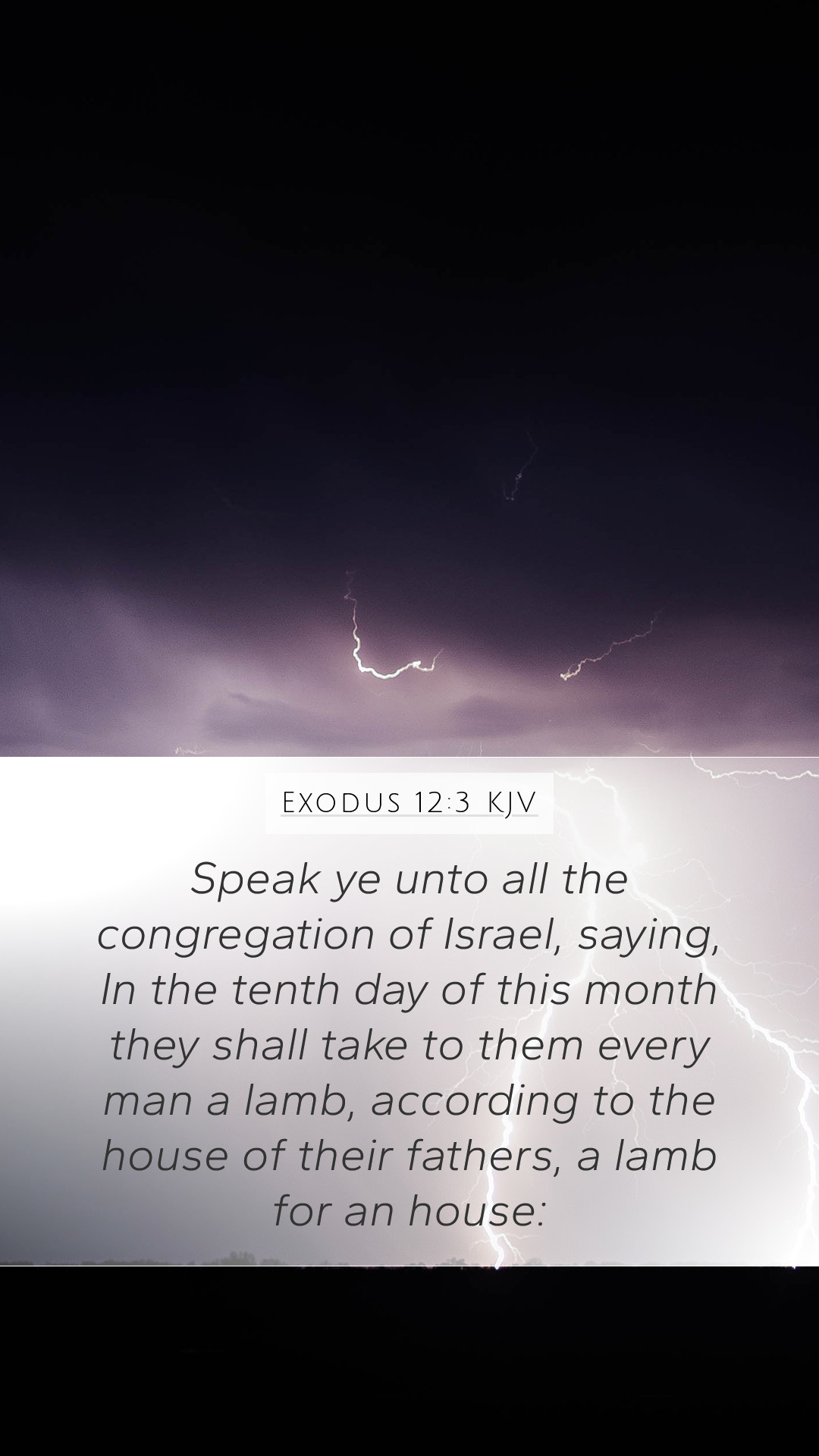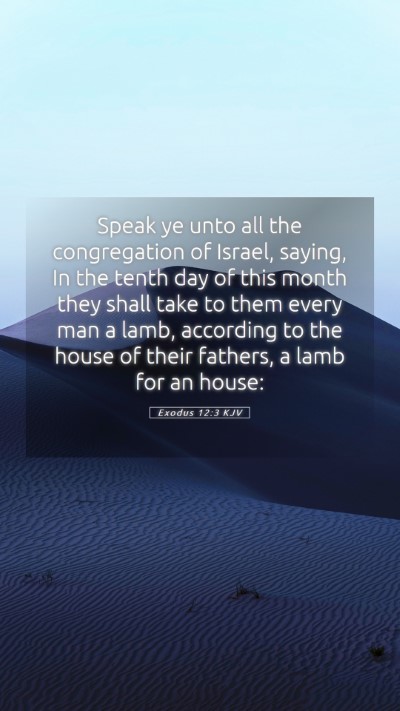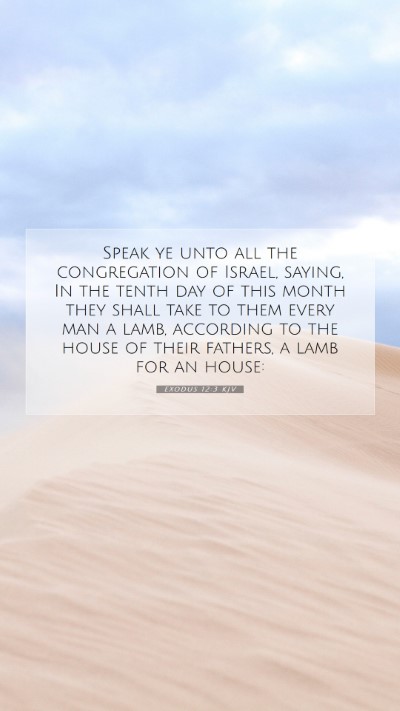Understanding Exodus 12:3
Exodus 12:3 states: "Speak ye unto all the congregation of Israel, saying, In the tenth day of this month they shall take to them every man a lamb, according to the house of their fathers, a lamb for an house."
This verse introduces a pivotal moment in the Exodus narrative where God instructs the Israelites on the preparations for the Passover. The Passover signifies both a physical deliverance from slavery in Egypt and a spiritual foreshadowing of salvation. Let's explore the deeper meanings embedded within this scripture, drawing from public domain commentaries by revered theologians.
Contextual Background
Exodus 12 narrates the final plague upon Egypt, where God would pass over the houses of the Israelites marked with the blood of a lamb, guaranteeing their protection and highlighting His covenant with them. The instructions given in this verse are not only practical but rich in theological significance.
Biblical Exegesis and Commentary
-
Matthew Henry's Commentary
Matthew Henry emphasizes that the command to take a lamb signifies an act of obedience and communal responsibility. Each household was to select a lamb, indicating that salvation is available to every family. The lamb symbolizes innocence and purity, foreshadowing the ultimate sacrifice of Christ. Henry notes that this was a preparation for a significant festival that would bind the community together in remembrance of God’s deliverance.
-
Albert Barnes' Notes
Albert Barnes points out the meticulousness of God's instruction regarding the lamb. He mentions that the lamb should be without blemish, highlighting the importance of purity and sacrifice in worship. Barnes also relates this to the future arrival of Jesus, the Lamb of God, who would take away the sins of the world. He asserts that the detail of selecting a lamb on the tenth day was deliberate, establishing a time for reflection and preparation for redemption.
-
Adam Clarke's Commentary
Clarke provides insights into the symbolism of the lamb within the cultural context of Israel. He discusses how the act of selecting a lamb was not just a ritual but an avenue for families to engage in a deeper understanding of sacrifice. Clarke also highlights that the Passover meal would become a lasting ordinance, crucial for teaching future generations about God's faithfulness and providence in delivering them from bondage.
Theological Significance
This verse lays the groundwork for the understanding of sacrificial atonement as seen throughout scripture. The lamb represents spiritual truths that resonate throughout both the Old and New Testaments, emphasizing God's mercy and justice. The act of blood covering the doorposts is a parallel to the New Testament's depiction of Christ's atoning sacrifice.
Application and Relevance Today
In modern times, Exodus 12:3 serves as a reminder of God's provision and the importance of following divine instructions. For individuals and Bible study groups, this verse encourages exploring the deeper meanings of sacrifice, community worship, and faithfulness. Engaging with this scripture through resources such as Bible study guides can enhance understanding and application to daily life.
Cross References
- Leviticus 23:5 - Instructions for the Passover.
- John 1:29 - Identifying Jesus as the Lamb of God.
- 1 Peter 1:19 - The significance of Christ as a lamb without blemish.
- Hebrews 11:28 - Moses' faith in the Passover.
- Revelation 5:12 - The Lamb worshipped in heaven.
Conclusion
Exodus 12:3 is rich with layers of meaning that extend beyond its historical context. By engaging in Bible verse interpretations and Scripture analysis, believers can appreciate the profound relevance of this verse. It calls for reflection on God's ongoing covenant and the importance of sacrifice, encouraging a deeper understanding of salvation history as it unfolds within the biblical narrative.


